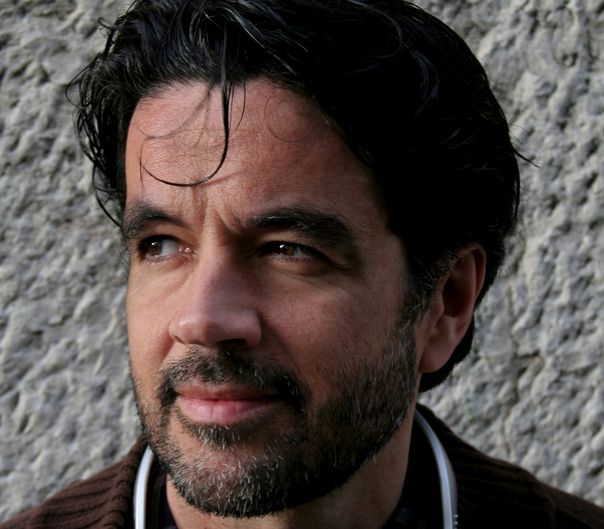Re-Educating the Public
Aderinsola Ajao of the 2013 Talent Press Durban interviews Joao Viana, director of THE BATTLE OF TABATO.

Joao Viana, director of THE BATTLE OF TABATO
It took Joao Viana five years to make his feature debut THE BATTLE OF TABATO, a film about music, magic and the post-colonial trouble of a village in Guinea Bissau. The film screened in competition at the 34th Durban International Film Festival, where the director spoke with Talent Press Durban participants.
A striking note in the film is the infusion of silence and Viana's minimal use of music, despite the fact that music is an essential theme in the film. "Each second takes time," he said. For him, silence or music is effective in terms of communicating a film's emotions in respect of its theme: war and peace in this case.
The absence of words is common in scenes featuring Fatu, a schoolteacher and her mentally-ill father Baio, a war veteran exiled in Portugal. "When you make light, you need to put in shadows, with sound it is the same." He put the silence in THE BATTLE OF TABATO down to the taciturnity that accompanies war trauma. Victims are usually withdrawn, he said, and their families have a hard time getting them to open up.
Despite the film's overbearing silence, the force of Viana's tale is apparent. His use of silence and stillness is haunting. Tableaux are constant in THE BATTLE OF TABATO; a photographic moment during which everything freezes and Viana does not intend it to relax you. "When the image stops, it’s a kind of death and for me when the image stops it gives goose bumps. It's contrary to cinema; cinema is movement and when the image is like that something very bad and dramatic is about to happen," he said.
THE BATTLE OF TABATO is the result of a collaborative effort involving Viana and the villagers of Tabato, where he spent five years making the film. The villagers are also the film's cast and co-writers, contributing the subtle mystical aspects to the story. "The future cinema of Africa needs that aspect of magic because it is very important, like music. I wrote the film with them, because they're storytellers, I'm a storyteller."
Viana's reason for making this film is simple. Dissatisfied with the prevalence of war stories on television in the country, he decided to make a film that would re-educate the public and show a different side from what many know of Guinea Bissau. "The film is to show children that there are other possibilities [outside the army] and the second thing is to show to television that there's another side to the story," a reference he made during the interactive session that followed his film about profiling: how Western cinema seems to only see one side of the African story.
"Everything combined is the country, what we are," said Viana. "There are too many directors in Europe, who need to travel to see other countries and shoot other types of films."

